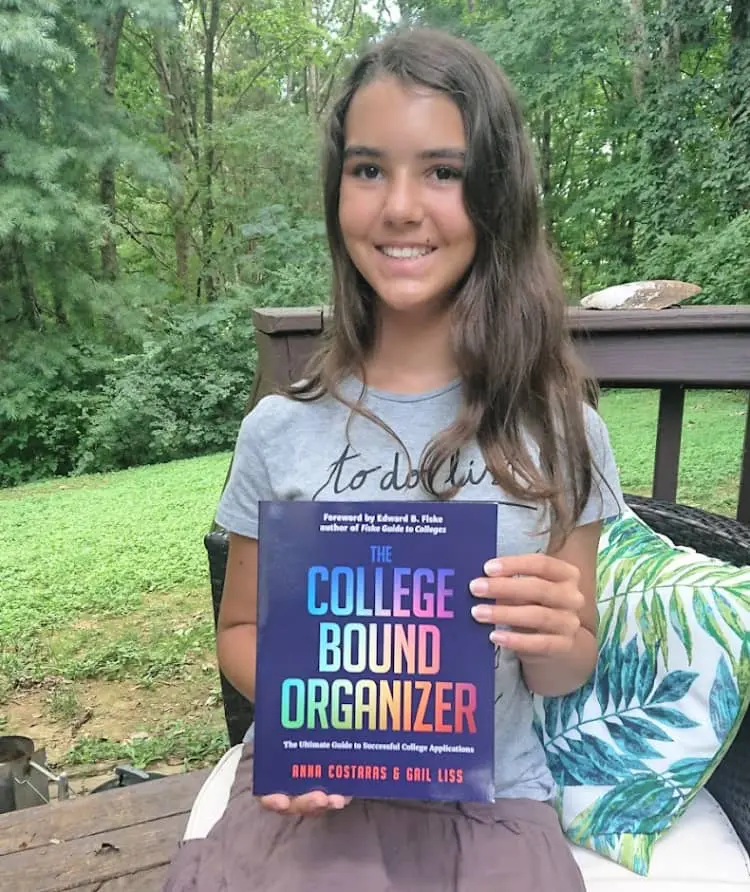As a parent, talking to your kids frankly about college is one of the most important things you can do. Ensuring they understand what they’re getting into can help them make better decisions in the future and live the life they want. But how do you approach this discussion? What should you even say? When talking to kids about college, it’s important to keep the conversation positive and exciting. College is a place where they can learn more about the things they love, meet new people, and discover new opportunities. It might feel far away, but talking about it now in a positive way helps them prepare for a bright future.

How To Get Your Child Excited For College
Going to college is awesome because it gives you the chance to explore new subjects, discover your passions, and dive deeper into what you love. It’s a place where you can meet new friends, experience independence, and join exciting clubs and activities. Plus, college opens doors to better career opportunities and personal growth, helping ensure a comfortable future. Here is how to share that desire to go to college with your kids.
Start Early
When should I start talking to my child about college? At some point your child will likely ask you what comes after school. This is a great time to get them about college. You can tell them how much fun college was for you and how it is a great chance to make new friends and study things they choose to study to prepare for their career. Let them know it is an exciting privilege to be able to go to college.
It’s a good idea to start talking to your kids early about the prospect of going to college, even if they are unsure what they want to study. Most parents begin at some point in middle school. You might want to do some career exploration and try to steer children towards subjects they are most likely to enjoy and pursue long-term.
Deciding on these study directions can be challenging in the early years but it can pay off in the future. Ideally, you want to pick a subject that motivates your child intrinsically and doesn’t require some sort of external threat to push them toward action.
Look At The Various College Options
The next step is to consider the various college options to see which works best for your child. Some more academic children like going to formal universities that teach traditional curriculums such as engineering. Others students do better in community colleges that teach business degrees. It is, of course, also possible to go to a technical college. In fact, many who do can go on and have highly successful careers in fields such as Automotive Technology or Aviation Maintenance Technology.

Talk About Grades
It’s also helpful to talk to your child about grades and how they can affect their choice of college. While it is always possible to go to a university and study for a degree, performance in exams opens up more options and facilitates access to the most prestigious institutions.
Many gifted children don’t put in significant effort in middle school, causing their GPAs to fall and reducing the likelihood of them getting into the colleges they want. The reason is that most don’t understand the long-term consequences of their actions. They can’t see how minimal effort today could undermine their prospects later. As such, parents should make this link clear. Even if the child has a high IQ, it doesn’t necessarily mean they will do well at the higher levels unless they learn to put in the effort.
Be Clear On Finances
You also want to be clear on finances and how they will work when your kids go to college. Talking about the money side of things before they set off can help temper expectations. However, this can be a bit overwhelming for kids so waiting till high school to talk college finances is a good idea.
For example, you might want to have your kids explore scholarships and financial aid. These programs ensure students have access to the money they need to see them through the university program.
Many parents also adopt college saving plans where children work a part-time job in the run-up to their university careers so that they have savings that can contribute to the cost of tuition.

Discuss College Life Beyond Academics
Finally, it is a good policy to discuss college life beyond the academic subjects your child will study. This will be how to get your child excited about college.
Getting your child excited about college involves sparking their curiosity and helping them see the benefits and possibilities college offers. Here are a few strategies to get them enthusiastic:
- Make it fun and low-pressure: Keep the conversation light and exciting rather than making it a high-pressure topic. Let them dream about what they could do rather than worrying about admissions.
- Connect their passions to college: Show them how their favorite hobbies or subjects could lead to exciting college majors and careers. For example, if they love science, introduce them to programs that allow them to explore it further, like labs or field research opportunities.
- Visit college campuses: Take them to tour nearby campuses, whether in-person or virtually. Seeing the vibrant environment, dorms, and student life can make college feel real and exciting.
- Talk about independence and adventure: Highlight the chance to meet new people, live on their own, and experience a new city or community. The idea of independence and self-discovery often excites kids.
- Involve them in college events: Let them experience the excitement of college through events like sports games, theater performances, or science fairs on campus.
- Share personal stories: Talk about your college experiences or share fun stories from friends and family. Personal experiences can make college feel more relatable and interesting.
- Discuss the long-term benefits: Explain how college opens doors to future opportunities, from career choices to traveling the world, making new friends, and growing as a person.
In addition, talking to them about their doubts and concerns puts them at ease and helps them feel less stressed about the process.
Conclusion
In the college decision process, parents play a vital role as guides and supporters. While the final choice belongs to the child, parents can provide valuable insights, encouragement, and practical help along the way. It’s important for parents to balance offering advice with giving their child the freedom to explore their interests and make decisions that align with their passions. By fostering open communication, respecting their child’s individuality, and providing emotional and financial guidance, parents can help ensure that the college experience is a positive and fulfilling step toward their child’s future.
Whether they choose to go to college or take a different path, what matters is exploring all their options and finding what makes them happiest. Encourage them to ask questions and imagine what their future might look like!
Related Posts:
How To Help Seniors With The College Application Process
10 Must-Know Study Skills for High School Students
Useful Tips for College Students- Advice For University Life

Delilah Bailey says
I would like to say that this writeup compelled me to take speak with my kids about going to university. They are only in elementary school but I think you are right that setting the tone for this future experience as desirable is good to get started on now.
Beauty says
This is the best website for parenting teens about to enter college. Thanks for your advice on having college discussions with my child.
CS Sivasankar says
Thank you for sharing such valuable insights on discussing college with kids and teens! Your guidance is much appreciated.
Amrita says
This piece provides such valuable insights on discussing college with kids! I love the idea of making the conversation positive and engaging from an early age. It’s essential to inspire them about their future options. Thank you for sharing these practical tips!
MAHESH DIGITAL says
What a thoughtful post! Talking to kids about college can be tricky, but I love your focus on making it a positive, exciting conversation rather than a stressful one. The tips on connecting college to their interests and helping them see it as an adventure are especially helpful. It’s a great reminder that encouraging their dreams is as important as providing practical guidance. Thanks for the helpful advice!